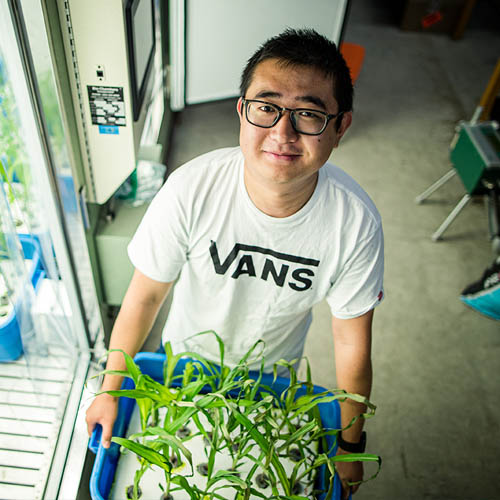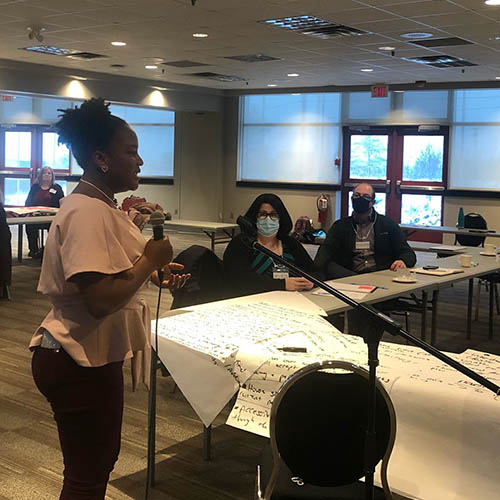Choose a report:
➤

Office of Engagement

Community Engaged Research

Community Engaged Learning



Two students supervised by business professor Dr. Billy Newell are taking on projects to help the private sector in the development of alternative products.
Bryant Pennell-Ferreira, who is pursuing a bachelor of business administration at Grenfell Campus, is working on a project titled "A review on how to collaborate with suppliers in the new product development Process."
The forestry sector is considered a traditional industry. With this comes problems that arise from established behaviours and ways of thinking. This is particularly apparent in the way the forestry industry handles their relationships with their customers and suppliers. As a result, Corner Brook Pulp and Paper Ltd. (CBPPL) is trying to find a new way to develop guidelines on learning how to properly collaborate with their suppliers.
"Collaborating is a modern way to approach business relationships by involving a firm's partners to the development process and openly working with them," said Mr. Pennell-Ferreira. "Currently, there is not much literature in the forestry sector regarding the collaborating of suppliers in the new development (NPD) process."
The aim of his paper is to review various literature in order to develop a strong set of recommendations that CBPPL can follow in order to develop these relationships and involve their partners with their new product development (NDP) projects. Ten acclaimed academic journals were used and more than 12,000 papers were searched.
Five major themes are described: 1) Contextual and strategic enablers and inhibitors of an effective NPD process, 2) Managing and governing the sharing of knowledge and information between organizations, 3) Managing and governing relationships during and after the NPD process, 4) Product aspects that affect the buyer-supplier NPD process, and 5) The effects of joint NPD for buyers and suppliers.
Three major recommendations are being developed to be used as a guide for the CBPPL going forward.
Meanwhile, the paper of Jon Butler, who is pursuing a master of business administration through St. John's Campus, is titled "CBPPL International Biofuel Market Research."
The purpose of his study is to research the global biofuel market, the potential for biofuel production by Corner Brook Pulp and Paper (CBPPL), and retrofit requirements for the mill to effectively manufacture biofuel.
"As markets shift away from the use of fossil fuels and petrochemical products due to rising oil prices or a desire for renewable and domestic feedstocks, industries relying on high energy density fuels such as aviation are finding the need to find alternative sources to sustain them," explained Mr. Butler, citing research that points to an opportunity to bridge the gap between these two industries and forge a new supply chain, providing access for the pulp industry to enter alternative markets.
"Although there is tremendous potential for biofuel with growing climate change concerns and pressure on the transportation industry to switch to a more sustainable fuel source, there are currently challenges with the economics and logistics of producing biofuel compared to fossil fuels. Additionally, there are limitations present when comparing various biofuels to traditional fuel," he said.
These challenges include:
To complete his study, Mr. Butler conducted a detailed literature review and market research analysis, as well as a series of virtual interviews with industry experts.